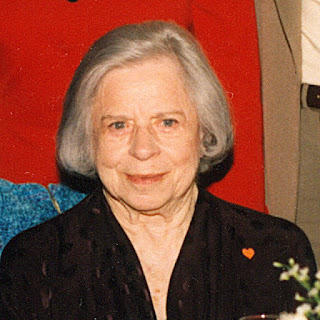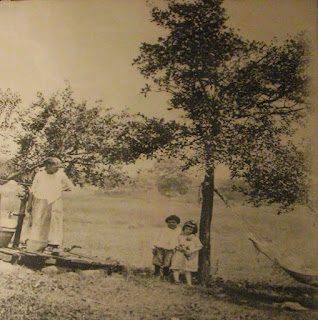(Prologue: Scroll down, skip the words. There's a lot of music to listen to in this post.)
One of the principal reasons I started Mixed Meters in 2005 was my desire to post the short musical pieces I was composing at Starbucks. (These are called
Thirty Second Spots, but you knew that, right?) At first I tried to use only free web services.
At the time I had a paltry 10 megabytes of online storage which quickly filled up with mp3 files. I looked around for a free web service that would allow me to post audio files and provide an embedded player. This would allow listening with just one click. I found
Castpost. Castpost worked fine through half of 2006. Then, suddenly, it stopped allowing further uploads.
The old links still worked but the handwriting was on the wall. Someday soon, I figured, Castpost will disappear and my files will vanish into puffs of digital smoke. I sought another site. The new site I found was
MOG. I converted all my Castpost embeds to Mog embeds. End of problem.
Mog worked fine for me though 2009. Then it went through a reorganization - something to do with copyrights and paying the music owners. All my files stopped playing. The embedded players stopped working. If you try to play the files you get this message:
Mp3 streams are temporarily disabled. Sorry for the inconvenience.
Apparently people who pay $5 a month can listen to my music on Mog. Even if I paid the five bucks I wouldn't be able to embed my own music on my own blog - which was the whole point in the first place.
My current solution is a free Google player which streams files uploaded to a website which I pay for. As long as I keep paying, the music should keep playing. I hope.
Still with me? Finally we've arrived at the present. Imagine my surprise recently when I noticed
my Castpost blog (the listing of all my posts combined). It appeared in a Google search. After 3 and a half years all the files still play. Sometimes they take a while to load, but they play.
I swiped the html source code from Castpost, cleaned it up and pasted it into this post. All the Castpost embeds appear below. None of this music is available
in the Mixed Meters left column. Go there if you want even more of my music.
These twenty Thirty Second Spots are all 90 seconds or less. (So sue me.) Most have copyright information which indicates the exact date of composition.
In addition, there's one extended piece from my years as a harried graduate student. It's called
Voluntary Solitude for clarinet (me) and live electronics. If you can live through the first 30 seconds of that piece you might enjoy the rest.
Please listen. Please enjoy. Whether you enjoy or not, please leave a comment.
MY CASTPOST POSTS
Macaca's Jewish Mama
a short 30-Second-Spot in honor of Senator George Allen, a Virginian who would be President, who said his own mother (according to the NY Times) hid her Jewishness from him because she feared he would love her less
Copyright (c) September 22, 2006 by David Ocker
The Gray Song
54 seconds - Just another piece of crappy electronica distilled to less than one minute.
Copyright (c) June 22,23 2006 by David Ocker
Jihadist Boogie
Copyright (c) June 15, 2006 by David Ocker - 59 Seconds ("one" (30 second spot) in the time of "two")
What Would Barbie Sing?
A short song - inspired by a news story about the quest to find 3 or 4 notes which will sell you Barbie dolls.
Here are the lyrics if you want to sing them yourself:
- (verse) I'm Barbie. I'm Barbie. What would I sing for you?
- (chorus) Math is hard.
- (verse) I'm sexy and plastic and Christian through and through.
- (chorus) Math is hard. Math is hard.
copyright July 3-7, 2006 by David Ocker, 52 seconds
Fang Man's Blues
30 Second Spots - a-sort-of-a-kind-of-a blues tune in honor of composer Fang Man http://people.cornell.edu/pages/mf247/ and also the Hang Man's Blues by Blind Lemon Jefferson
http://www.juneberry78s.com/sounds/ListenToCountryBlues.htm
42 Seconds Long - Copyright (c) June 29-30, 2006 by David Ocker
Model A Mazda
uses just one pitch so you know it's going to be really boring - but it's also short
The Cross is So Frickin' Cool
The title was overheard in a Starbucks. It was said by a seminary student, studying for finals. ("Frickin'", of course, is just a hollow substitute for "Fuckin'". But you knew that.)
Oh, Was He Still Around?
The title was my reaction when I heard that Kagel had died. No wait. Ligeti. It was Ligeti.
Copyright (c) June 13, 2006 by David Ocker
Flakes (Desiccant)
An outtake from a much longer piece entitled "Eating the Desiccant" which is not available online.
30 Second Spots - copyright (c) June 2006 David Ocker
Voluntary Solitude (1975)
13 minutes 04 seconds - a piece for clarinet and live electronics - all sounds come from the clarinet. Recorded May, 1975 - David Ocker, clarinet
(c) 1975, 2006 David Ocker
The Laptop in Live Performance?
30 Second Spots - 35 Seconds Long - copyright (c) March 14, 2006 by David Ocker
That's The Point of It - Extended
A long 30 Second Spot - 79 seconds - copyright 2006 David Ocker
By Then She Would Have Slept With Him
30 Second Spots - 36 Seconds Long - copyright (c) Feburary 24, 2006 by David Ocker
Carpool
38 seconds long - 30 Second Spots (c) February 22, 2006 by David Ocker
Walking Room Rainbow
30 Second Spot - 69 seconds long - solo guitar -copyright (c) March 3, 2006 by David Ocker
That's Not Your Baby Concerto - Long Version
the 33 second version expanded to over 2 minutes - still a 3 movement concerto - copyright Feb 18-21, 2006 by David Ocker
That's Not Your Baby Concerto
a three movement concerto in 33 seconds - copyright Feb 18 2006, by David Ocker
Something I Need to Discuss With Arnold
a 30 second spot, composed by David Ocker, on February 7, 2006 - 33 seconds long - a midi performance, music that splits in two half way through
Mozart and Microsoft - Early Death
composed Feburary 16, 2006 - 30 seconds long - a Work Song for a Gang of Convict Frogs
Clock Time
31 seconds long, composed February 14, 2006, an Infuriating Concerto for Woodblocks
Mean Burn
90 second mp3 of "Mean Burn" by David Ocker - midi
Castpost Tags: Castpost. . . Mog. . . 30 Second Spots
















